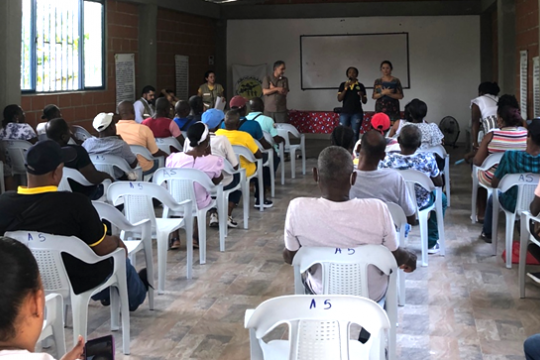Preamble
Formalization in small-scale gold mining communities in Colombia offers valuable insights into the complexities surrounding this process. Analyzing elements such as the formation of local mining associations, financial contributions to authorities, unpaid work for site restoration, and the influence of gold prices, evidences the diverse preferences and challenges faced by miners.
The findings underscore the significance of local context and historical experiences in shaping miners' attitudes toward formalization. Understanding these nuances is crucial for policymakers and civil society to effectively communicate the benefits and costs of formalization, facilitate group formation, and streamline administrative processes. Moreover, recognizing gender differences and the importance of social capital formation is essential for designing inclusive strategies that address the specific needs of women miners and promote their participation in formalization efforts.
The identification of a price premium expectation highlights the economic incentives necessary to incentivize communities to pursue formalization and supply chain upgrading. However, it's crucial to acknowledge and address additional obstacles such as the presence of illegal armed groups, which pose significant threats to community-based organizations and miners' livelihoods. The potential risks associated with formalization in regions vulnerable to exploitation by armed groups warrant further research and consideration in policy development.
Moreover, the methodology implemented to understand miners' preferences adds a novel dimension to the literature on environmental and natural resource policies. By addressing the importance of local context in shaping responses to formalization options, this study contributes valuable insights that can inform the design of more effective development interventions in similar contexts.
Overall, this research underscores the multidimensional nature of formalization in small-scale gold mining and emphasizes the need for tailored, context-specific approaches to address the diverse preferences and challenges faced by mining communities.




